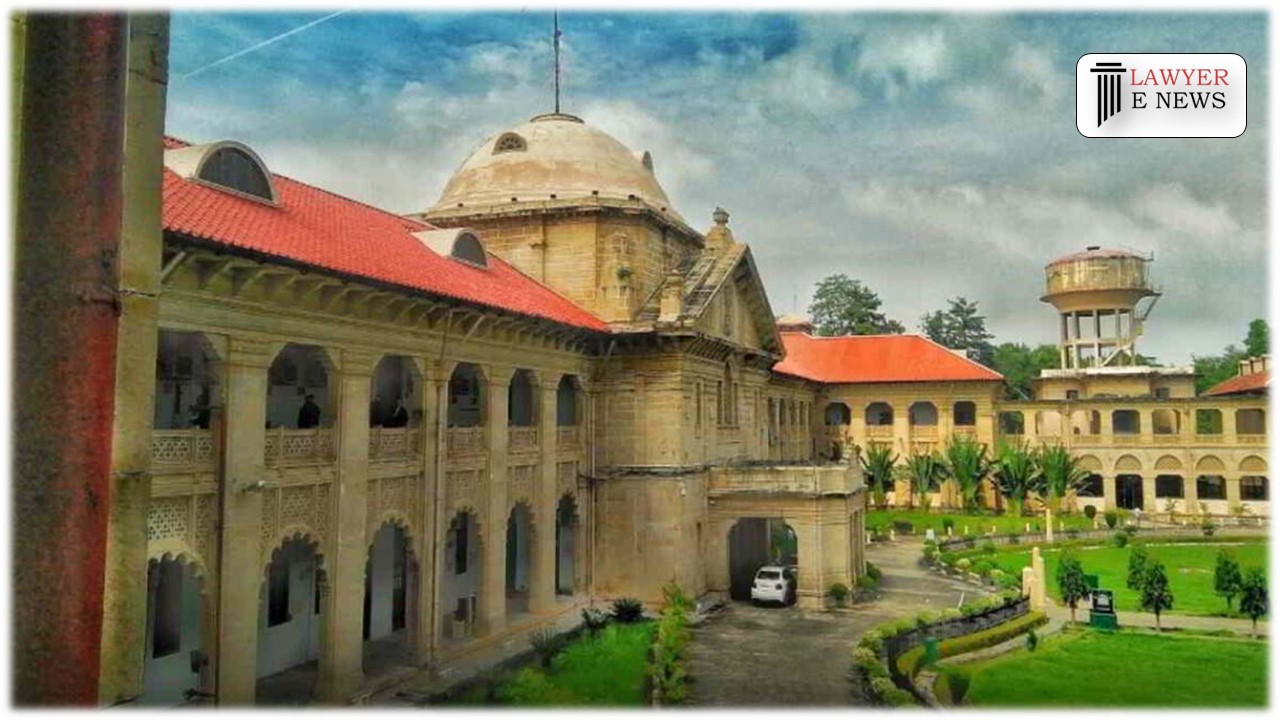-
by Admin
15 February 2026 2:36 AM



In a recent judgment, the Allahabad High Court, represented by Justice Jayant Banerji, has emphasized the significance of flexibility in divorce cases and the importance of the cooling-off period mandated by Section 13-B of the Hindu Marriage Act, 1955. The case, which dealt with a matrimonial petition for the dissolution of a marriage, shed light on the need for courts to consider the unique circumstances of each case.
The judgment, delivered on 5th October 2023, revolved around a petition filed by Smt. Priya Gupta seeking to set aside an order passed by the Principal Judge of the Family Court, Kanpur Nagar. This order had rejected the application to waive the six-month cooling-off period in a divorce case involving mutual settlement between the parties.
Justice Jayant Banerji's observations underscored the court's role in ensuring that the legal process aligns with the realities faced by couples seeking divorce. He stated, "The time gap is meant to enable the parties to cogitate, analyze, and take a deliberated decision. The object of the cooling-off period is not to stretch the already disintegrated marriage, or to prolong the agony and misery of the parties when there are no chances of the marriage working out."
The judge referred to the landmark case of Amardeep Singh vs. Harveen Kaur and the recent Supreme Court judgment in Shilpa Sailesh vs. Varun Sreenivasan, both of which emphasized the court's discretion to waive the cooling-off period under exceptional circumstances. Justice Banerji further highlighted that "the waiver is not to be given on mere asking, but on the court being satisfied beyond doubt that the marriage has shattered beyond repair."
The case in question involved a marriage that lasted less than a month, with both parties mutually agreeing to dissolve it due to irreconcilable differences. A comprehensive compromise agreement had been reached between them, covering various aspects, and both parties claimed there were no children from the marriage.
Despite recognizing certain discrepancies in the Family Court's order, Justice Banerji chose not to interfere with it. However, he advised the parties to move an appropriate application before the Family Court to reconsider their case in light of the judgment's principles and the parties' genuine settlement.
This judgment from the Allahabad High Court underscores the need for a balanced approach in divorce cases, acknowledging the importance of upholding the law while considering the unique circumstances and the interests of the parties involved.
Date of Decision: 05 October 2023
Smt. Priya Gupta vs Harshvardhan Gupta
